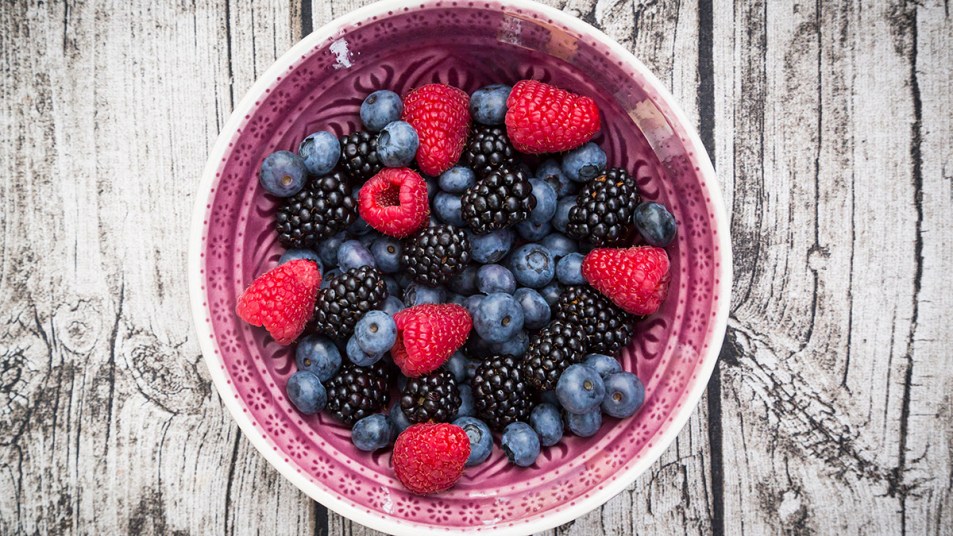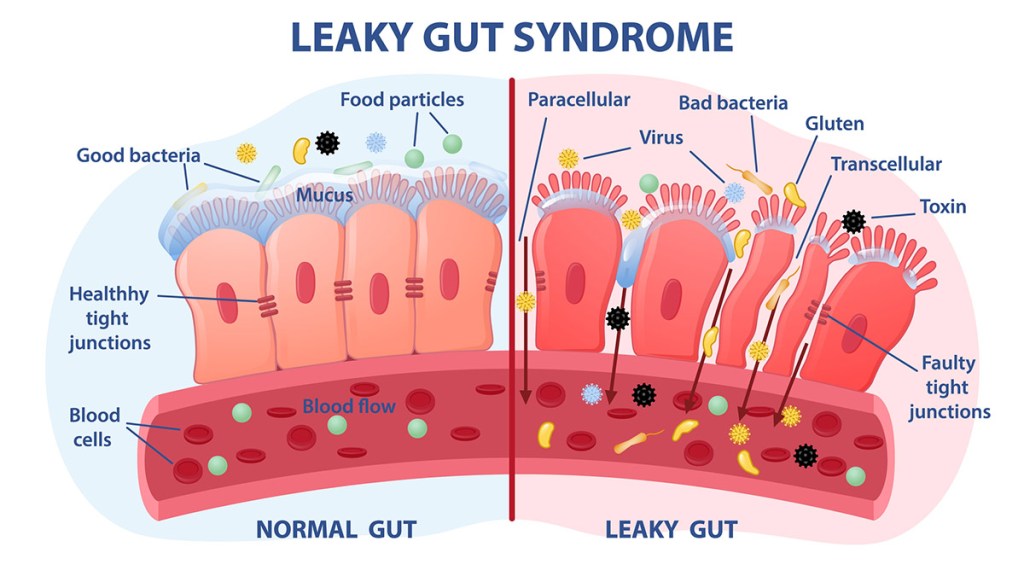How Fruit Can Help Heal Your Leaky Gut So The Weight Just Falls Off

The summer months are a peak time for fruit, but that doesn’t mean you can’t slice up an apple or peel an orange as the temps drop (delicious citrus may just be one of the best things about winter!). In fact, a new study shows that these beloved fruits could play a key role in preventing leaky gut and regulating your digestive health as you get older. That’s all thanks to some incredibly helpful compounds called polyphenols.
What is leaky gut?
Leaky gut, technically known as “increased intestinal permeability,” is a term used to describe a condition in which the lining of the small intestine becomes more permeable or “leaky” than is optimal for good health. In a healthy digestive system, the lining of the small intestine acts as a barrier, controlling the passage of nutrients and other substances from the intestine into the bloodstream. This barrier is made up of tightly packed cells and various proteins that help regulate the movement of molecules.

When this barrier becomes compromised, due to things like aging, an unhealthy diet and food allergies, larger molecules, such as undigested food particles, toxins, and bacteria, to pass through the intestinal lining and enter the bloodstream, the gut becomes ‘leaky.’ This can lead to a number of health complications, such as diabetes, cardiovascular diseases and even Alzheimerʼs disease. It can more immediately cause symptoms that include bloating, gas, diarrhea, and abdominal discomfort, as well as systemic symptoms like fatigue, joint pain, and skin issues. As you can imagine, these symptoms plus the inflammation associated with leaky gut can cause the body to pack on fat. Since these symptoms are similar to those of many other conditions, it’s challenging to diagnose leaky gut.
What are polyphenols?
Polyphenols are a highly diverse group of naturally occurring compounds found in plants. They are named for their chemical structure, which includes multiple phenol rings. Polyphenols are abundant in a wide variety of foods and beverages, including fruits, vegetables, tea, coffee, red wine, cocoa, and whole grains. The compounds play a critical role in the body, as they often behave like antioxidants to prevent blood clots, lower blood sugar, and most importantly, fight off harmful gut bacteria while promoting beneficial ones.
How polyphenols help repair the gut
In new research published in Clinical Nutrition, scientists put 51 adults over the age of 60 on a polyphenol-rich diet for eight weeks to see how it affected intestinal permeability and the gut’s microbiome. This included foods and beverages such as apples, cocoa, dark chocolate, green tea, cranberries, oranges, and pomegranate juice up to three times per day. Researchers took blood and fecal samples from participants and had them undergo physical exams over the course of the study to track their progress.
By the end of the two-month period, results showed that these foods, especially fruits, were correlated with creating and maintaining several key bacteria that promote gut health and keep the intestinal wall strong. Inversely, eating a polyphenol-rich meal also decreased the production of proteins that led to more fragile intestinal walls.
Researchers hope that their results draw more attention to how a healthy diet can affect symptoms of aging, like a leaky gut. “A higher intake of fruits, vegetables, and foods such as those described in this paper provide fiber and polyphenols that could help counterbalance the damaging of permeability due to aging,” explained Cristina Andrés-Lacueva, a professor at the University of Barcelona, in a press release. She also hopes that digestive health takes more precedence when healthcare professionals are working with older patients on their diets and overall well-being.
What fruits are most healing for leaky gut?
While all fruits have some polyphenols, the following fruits are highest in the healing compounds:
- Wild blueberries (836mg per 100g)
- Plums (377mg per 100g)
- Sweet cherries (274mg per 100g)
- Blackberries (260mg per 100g)
- Strawberries (235mg per 100g)
- Raspberries (215mg per 100g)
- Prunes (194mg per 100g)
- Black grapes (169mg per 100g)
- Apples (136mg per 100g)
Just by choosing more of these super fruits, you will be well on your way to healing your gut problems — and experience increased health and vitality.
For more on foods that are gut-friendly:
Sweet Potatoes Deliver Astonishing Health Benefits: What Doctors Want You To Know
6 Low Sugar Fermented Foods Proven to Dramatically Improve Gut Health













